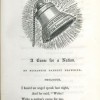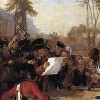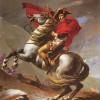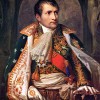
Denae Dyck and Marjorie Stone, “The ‘Sensation’ of Elizabeth Barrett Browning’s Poems before Congress (1860): Events, Politics, Reception”
Elizabeth Barrett Browning’s Poems before Congress paradoxically addresses a political event that never took place: a meeting of European powers to discuss the “Italian question” planned for January of 1860. Nevertheless, the collection addresses several momentous historical developments, including the Second Italian War of Independence in 1859, the intervention of Napoleon III of France in the Italian struggle, and the international conflict his intervention precipitated. Indeed, the book’s publication and the sensation it created in themselves constitute a plurality of events, since the collection appeared under differing titles in England and America and encountered differing responses in each country. Contrary to the still dominant critical view that the volume was almost universally denounced, its reception was shaped by diverse locations, shifting chronological contexts, and conflicting political affiliations. Close analysis of the reviews underscores the importance of these wider contexts, which influence what otherwise appear to be primarily literary or aesthetic judgements. At the same time, analysis of varying responses to not only “A Curse for a Nation” but also “Napoleon III in Italy” and other poems in the volume demonstrates a number of recurring points of contention. These include the collection’s title, the politics of interventions across national borders, English liberalism, the nature of democracy, cosmopolitanism versus nationalism, women writers in relation to politics, poetic form, and, most of all, EBB’s representation of Napoleon III—the issue that is front and centre in most of the 1860s reviews and that shaped, in turn, reactions to all the rest.

Frederick Burwick, “18 June 1815: The Battle of Waterloo and the Literary Response”
Although Europe had celebrated the end of the Napoleonic Wars with the defeat of the French armies and the abdication of the emperor on 11 April 1814, Napoleon escaped and again rallied his troops against the British and Prussian armies. His defeat at Waterloo on 18 June 1815 was the final battle with heavy losses on all sides. The extensive response in the British press was unprecedented. In addition to several military reports of the battle, many civilian eye-witness narratives also appeared. Memoirs, histories, and biographies added to the prose accounts. With contributions from Lord Byron, Sir Walter Scott, Robert Southey, William Wordsworth, and many minor authors, the poetry included both celebrations of the victory and lamentations over the loss of lives. Theatres, too, brought forth numerous spectacles and melodrama. Londoners were also treated to several exhibitions and panorama displaying scenes from the battle (Favret 8-12).

Mary Favret, “The Napoleonic Wars”
Trying to locate the Napoleonic Wars as an event, or a constellation of events in time and space, only reveals the historical dislocations produced by war on a global scale. Like many of the wars of the twentieth century, the Napoleonic wars illustrate how warfare, seemingly the most conventional object of history, defies history’s most conventional questions: when, where, who? Yet these particular wars also pose distinctive difficulties to our efforts to pin them down. This essay examines how the Napoleonic wars, in their scale, their repetitions and infiltration of cultural forms, keep history – and the historical event – an open, persistent question.

Alison Chapman, “On Il Risorgimento”
“Il Risorgimento”, the popular term for Italian Unification, is a complex and contentious term that connects two highly symbolic moments in the peninsula’s history: the crowning of Napoleon as King of Italy in 1805 to the 1861 unification of most of Italy with the military and diplomatic assistance of his nephew Napoleon III and King Victor Emanuel of Piedmont. The complex and contradictory set of myths that insist on the “beautiful legend” of the Risorgimento cover over the very difficulty and controversy of the notion of Italy itself.
